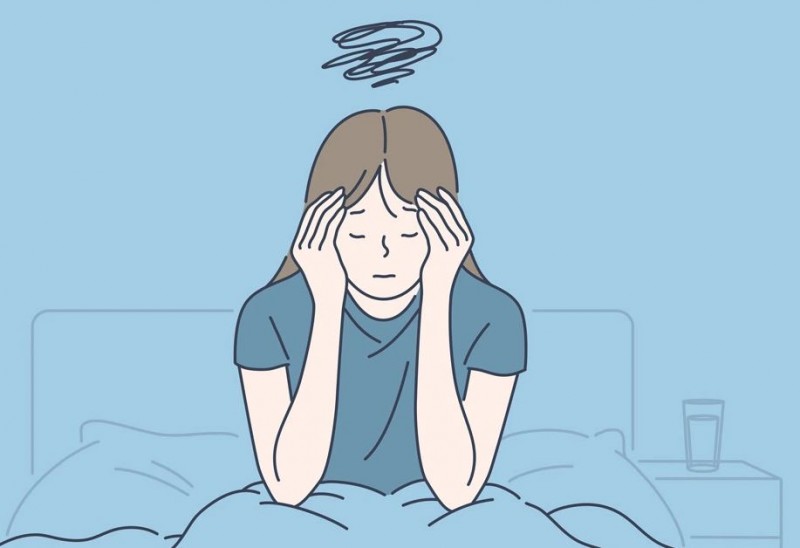
Many people fear waking up in the morning, feeling extremely disappointed and distressed as soon as they open their eyes. They often lack the energy to get out of bed, despite being physically fit. This condition is primarily a mental game and is commonly referred to as morning depression, or diurnal variation. Understanding the causes behind this condition can help in managing it effectively.
What is Morning Depression?
Morning depression is characterized by feelings of low mood and sadness upon waking, which gradually improve as the day progresses. According to the American Psychological Association, individuals with morning depression feel more depressed, anxious, and irritable in the morning. This condition can negatively impact their ability to work and overall productivity.
Symptoms of Morning Depression
The symptoms of morning depression can vary from person to person, but common signs include:
Difficulty Getting Out of Bed: Struggling to find the motivation or energy to start the day.
Low Energy Levels: Feeling exhausted and drained, even after a full night's sleep.
Morning Task Difficulty: Simple tasks such as showering or making breakfast feel overwhelming.
Concentration Issues: Difficulty focusing on tasks or making decisions.
Increased Irritability: Feeling more frustrated or short-tempered than usual.
Feelings of Loneliness: A sense of isolation or loneliness that is particularly intense in the morning.
Hypersomnia: Excessive sleeping or difficulty waking up.
Loss of Appetite: Lack of desire to eat breakfast or other meals.
Causes of Morning Depression
Understanding the underlying causes of morning depression is crucial for effective management. Key factors include:
Incomplete Sleep: Poor sleep quality or insufficient sleep can significantly contribute to depression. Conversely, depression can also disrupt sleep patterns, creating a vicious cycle. Conditions such as insomnia or sleep apnea can exacerbate these issues.
Increased Stress: High stress levels trigger the release of cortisol, a hormone that increases heart rate, blood pressure, and blood sugar levels. Chronic stress and elevated cortisol levels can lead to anxiety, depression, and cognitive issues, all of which can manifest as morning depression.
Major Life Changes and Stressors: Significant life events such as divorce, job loss, or other traumatic experiences can trigger or worsen depression. Long-term stress and significant lifestyle changes can contribute to morning depression.
Inflammation: Research has shown that inflammation in the brain, indicated by high levels of chemicals like interleukin-6 (IL-6), is associated with mental health disorders such as depression and schizophrenia. This inflammation can contribute to morning depression.
Biological Factors: Neurotransmitters like serotonin and dopamine are crucial for mental health. Serotonin is linked to feelings of happiness and calmness, while dopamine is associated with motivation and reward. An imbalance in these neurotransmitters can lead to symptoms of depression, including morning depression.
Managing and Preventing Morning Depression
Effective management of morning depression involves a combination of lifestyle changes, therapeutic interventions, and proactive strategies:
Psychotherapy: Cognitive Behavioral Therapy (CBT) and Interpersonal Therapy (IPT) are effective in addressing negative thought patterns and improving mood regulation. Therapy can help individuals develop coping strategies and better manage symptoms.
Maintain Sleep Hygiene: Establishing a consistent sleep schedule and creating a comfortable sleep environment are essential. This includes using dim lighting, choosing comfortable pillows, and practicing relaxation techniques before bed to improve sleep quality.
Improve Lifestyle Habits: Regular physical activity, a balanced diet, and avoiding alcohol and smoking can significantly improve mental health. Activities such as mindfulness or meditation can help manage stress and reduce symptoms of morning depression.
Prepare for the Morning the Night Before: Reducing morning stress by preparing the night before can alleviate symptoms. This might include setting out clothes, preparing breakfast, or planning the day's tasks in advance.
Seek Professional Help: In cases where morning depression is severe or persistent, consulting a healthcare professional is essential. Medication, therapy, or a combination of both may be necessary to manage symptoms effectively.
Morning depression is a challenging condition that affects many people. By understanding its causes and implementing effective management strategies, individuals can improve their mental health and overall quality of life. With the right support and proactive measures, morning depression can be managed and its impact minimized.
No Tobacco Day 2024: Beware of Long-Term Effects of Smoking
No Matter How Hungry You Are, Do Not Eat THESE Foods
THESE 10 Things To Do Before You Sleep for a Healthy Lifestyle